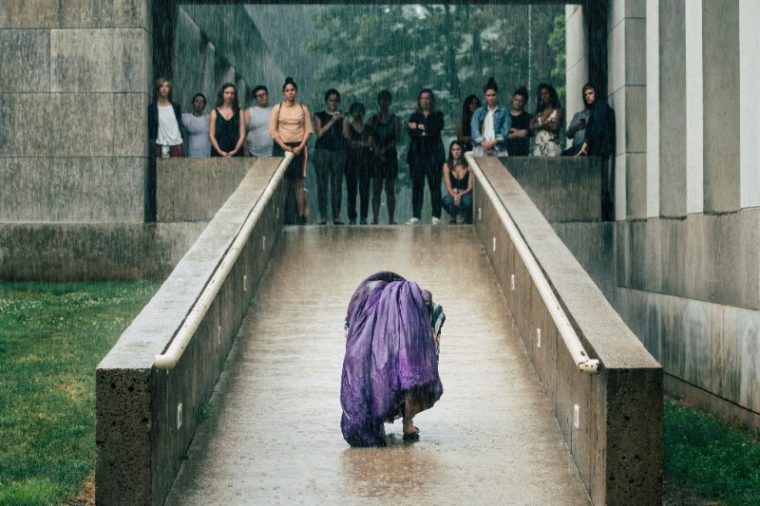Wesleyan Receives $250,000 Mellon Foundation Grant to Support Artist Residency, Commission Program

The Andrew W. Mellon Foundation has awarded Wesleyan a $250,000 grant to implement an innovative artist residency model to deepen engagement with the arts on campus and expand their impact in the community. The grant will be spent over three-and-a-half years, in a period ending in June 2022.
Wesleyan has a long history of hosting artist residencies, in which visiting artists offer master classes and give talks based around a single performance or art installation. Most residencies have been relatively short-term, with a few notable exceptions. Under the Mellon grant, the University will establish an expanded version of the artist residency model with a focus on commissioning original, innovative work. Resident artists will teach a semester-long course, and will become embedded in a particular department but also work across departmental and community borders. They will also conceive and develop a piece of art or performance with student interns/apprentices who are integrally engaged in the generative process over a 12-month period, and premiere that commissioned piece as part of Wesleyan’s presenting or exhibition season or, depending on the work, in a venue off campus.
“Historically, universities have been crucial for artistic experimentation, and Wesleyan has long been a home for adventurous, creative work. With support from the Mellon Foundation, we will nurture, support, and promote innovative artistic work,” said President Michael S. Roth. “Our goal is to give artists the resources and stimuli to help them be cultural catalysts, while also infusing the arts more deeply into campus life at Wesleyan.”
The project will be housed in the Center for the Arts and overseen by its director, Sarah Curran.
Curran is planning to host three artists-in-residence, each for a yearlong period, over the course of the grant. In keeping with the University’s longstanding commitment to interdisciplinary learning, the artists will engage with faculty and staff from areas across the University.
“The longer residency period will be key to developing transformative relationships with faculty and staff in areas across the University,” said Curran. “We plan to host regular gatherings to promote interaction and build relationships between faculty and artists. Courses offered by resident artists will be cross-listed with our other relevant departments, and resident artists will be encouraged to participate in University-wide meetings and events.”
Wesleyan has long made its performing and visual arts offerings open to the public, and more recently has made efforts to engage with students in Middletown’s public schools and in after-school programming. With help from the grant, Wesleyan aims to expand these efforts, in partnership with the University’s Jewett Center for Community Partnerships.
“An artist residency and commission program will be another important step in our efforts to support art-making as a mode of long-term research that energizes the educational experience and enhances community engagement,” said University Provost and Senior Vice President for Academic Affairs Joyce Jacobsen. “We are extremely grateful to the Mellon Foundation for its support in these efforts.”
The grant comes at a propitious time for the CFA, with a number of new staff coming on board with plans for expanding interdisciplinary collaborations. Curran is in her second year as director and has enhanced the focus on art and performances that cross disciplinary boundaries and involve students in the creation and presentation of works in ways that are integral to their academic experiences. The CFA also recently welcomed Ben Chaffee as associate director for visual arts and Fiona Coffey as associate director for programming and performing arts. Miya Tokumitsu recently joined the University as curator of its Davison Art Collection. Nicole Stanton, associate professor of dance and associate professor, African American studies and environmental studies, began this fall as divisional dean of the Arts & Humanities. She is the first person from the performing arts to hold this role.
The Andrew W. Mellon Foundation previously awarded grants to Wesleyan in support of the arts, including grants for the Creative Campus Initiative and the Institution for Curatorial Practice in Performance. The arts have long been at the center of the liberal education offered at Wesleyan, and this latest grant to the University from the Mellon Foundation will further invigorate the teaching, learning, and creation of art on campus and beyond.

